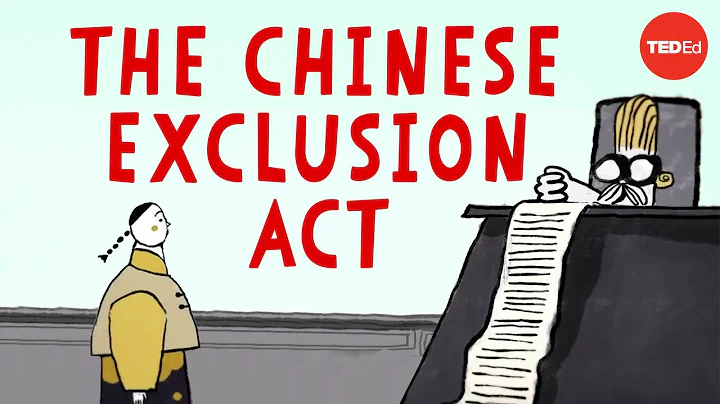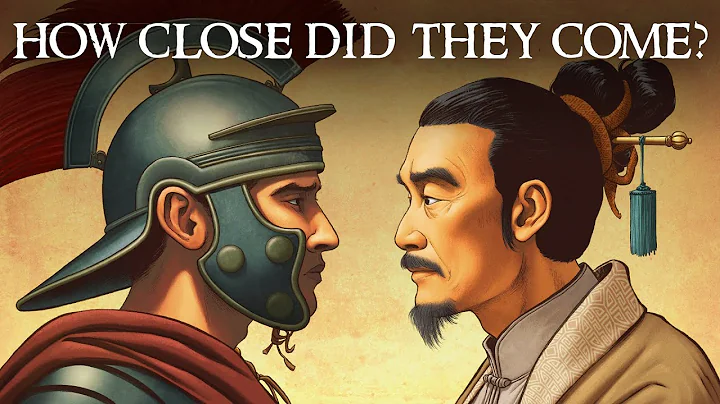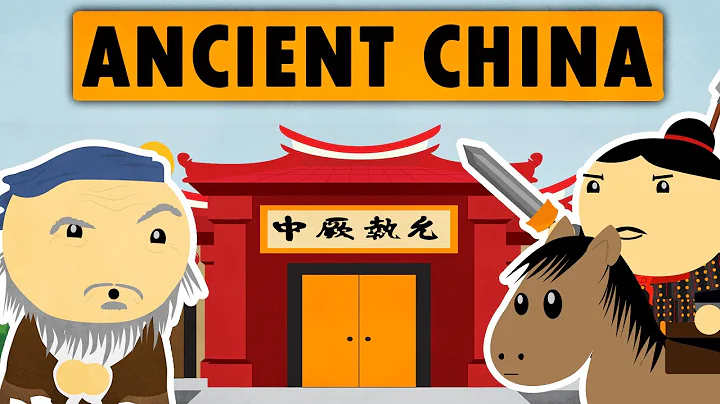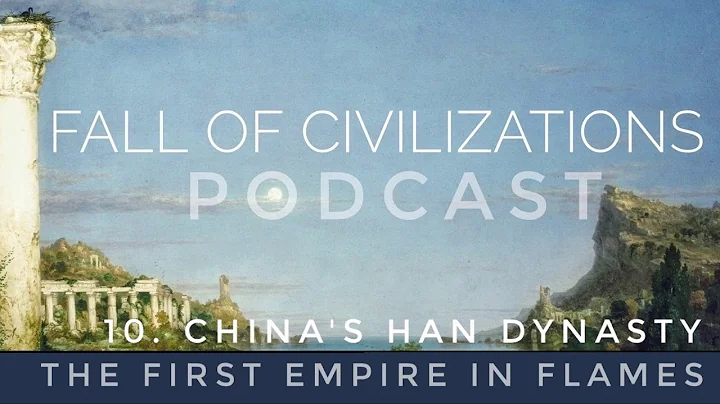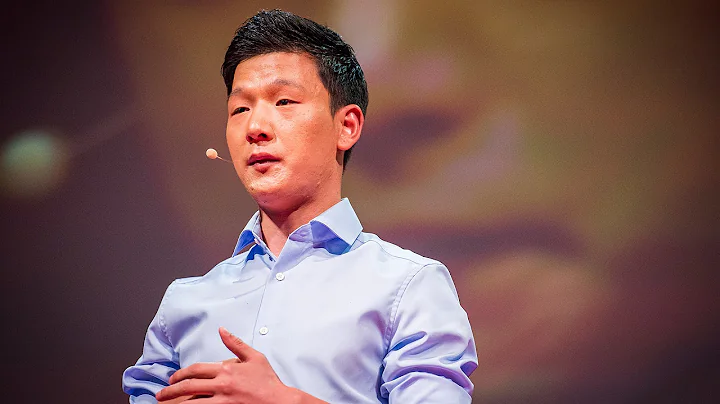Introduction
In ancient China, border security issues have always been a major hidden danger for all dynasties and generations. Especially the nomadic peoples in the north often used their combat mobility to invade the Central Plains, burn, kill and loot.
During the Spring and Autumn Period and the Warring States Period, Zhao State, one of the Seven Heroes of the Warring States Period, broke out wars with the Huns many times. The Huns were defeated steadily and consolidated the security of the border.

After the Qin State unified the world, facing the invasion of the Huns from the north, it chose a passive defensive posture and built the Great Wall. At the end of the Qin Dynasty and the beginning of the Han Dynasty, the Han Dynasty was weak and was forced to choose to make peace with the Xiongnu, which gave it a chance to temporarily recuperate.
During the period of Emperor Wu of the Han Dynasty, he took the initiative to attack the Xiongnu with Huo Qubing, Wei Qing and others as his generals, and gained the initiative on the battlefield.
At the end of the Han Dynasty, during the Three Kingdoms period, all the heroes came together, and the Central Plains fell into a war that lasted for decades. The three kingdoms of Wei, Shu, and Wu became a pot of porridge, fighting each other to the death.
When the Central Plains was in chaos, why didn't foreigners take the opportunity to invade and reap benefits? In fact, although the Three Kingdoms were in a period of war, Wei, Shu, and Wu did not relax their vigilance against foreigners. They all sent capable people to guard the borders, and achieved very good results.

So, during the Three Kingdoms period at the end of the Han Dynasty, who were responsible for guarding the borders and preventing the invasion of foreign nationalities in the Wei, Shu and Wu kingdoms?
The Gongsun family was destroyed Goguryeo
Gongsun Du was the prefect of Liaodong at the end of the Han Dynasty. At the end of the Han Dynasty, the Central Plains was in chaos, and all the heroes came together. Liaodong was relatively peaceful and gained rare tranquility.
Under the management of Gongsun Du and his descendants, Liaodong's strength increased greatly, and it defeated Goguryeo's invasion many times.
During the period when Gongsun Du was in charge of Liaodong, he conquered foreign countries and conquered foreign barbarians. He conquered Goguryeo in the east and Wuhuan in the west. He won great victories and was powerful overseas.

After Gongsun Du passed away, his son Gongsun Kang inherited his father's position. At that time, Yuan Shao was defeated in the Battle of Guandu. Cao Cao took advantage of the opportunity of Yuan Shao's sons to seize power from each other and defeated each one. , eliminated Yuan Shao's power.
Yuan Shao's two sons Yuan Xi and Yuan Shang were desperate and came to seek refuge with Gongsun Kang. Gongsun Kang did not want to offend Cao Cao, so he killed Yuan Shao's two sons and gave their heads to Cao Cao.
In addition to appeasing Cao Cao, Gongsun Kang also led troops to defeat Goguryeo and captured their capital. The Goguryeo people were afraid of Gongsun Kang's strength and were forced to move their capital to the mountain city Wandu.
Goguryeo was beaten so hard by Gongsun Kang that it could not hold its head up. It contacted Cao Cao many times, hoping that the two families would join forces to eliminate it, but this plan never succeeded.
During Gongsun Kang's lifetime, he displayed great power on the Korean Peninsula so that Goguryeo could not take advantage of the war in the Central Plains to invade the Han Dynasty border.

Internally, although Gongsun Kang was an independent prince in Liaodong, he still obeyed Cao Wei on the surface. After his death, he was posthumously awarded the title of Great Sima by Cao Pi.
The Gongsun family was able to defeat the invasions from Goguryeo repeatedly during the late Han Dynasty and the Three Kingdoms period by relying solely on Liaodong, and beat them into submission.
"Strive for stability", Cao Wei's strategy of guarding the border
As early as before Cao Cao unified the north, the princes Gongsun Zan and others in the late Han Dynasty repeatedly defeated foreign enemies, became powerful outside the Great Wall, and became strong men guarding the border.
After Cao Cao defeated Yuan Shao, in order to eliminate the remaining forces of the Yuan family, he decided to solve the problem of Wuhuan from the three counties entering the fortress. He defied all opinions and took the risk of an expedition to Wuhuan.
Cao Cao's general Zhang Liao was not afraid in the face of danger. Facing the Wuhuan cavalry that was several times larger than his own, with the authorization of Cao Cao, he commanded tiger and leopard cavalry to charge and kill Wuhuan Shanyu Tadun under his horse, defeating Wuhuan. army and achieved victory in the expedition.

After the Battle of Chibi , Cao Cao was unable to unify the Central Plains for a while, and focused his main energy on dealing with the northern nomads and protecting the security of the border.
Facing the remaining separatist forces in the north, Cao Cao adopted the policy of striving for stability and adopted a conciliatory attitude towards the Gongsun family in Liaodong.
Cao Cao adopted a strategy of disintegration and disintegration against Xianbei and the Xiongnu. In 218 AD, he sent Tian Yu and Cao Zhang to attack the rebellion in the north.

Tian Yu's army arrived at Yishui and was surrounded by Wuhuan's ambushed mobile cavalry. At the critical moment, he used chariots to form a circular battle formation according to the terrain, and then shot Wuhuan's cavalry with bows and arrows, defeating the enemy. military.
The Hu people were unable to break through Tian Yu's army and were in danger of being defeated. Tian Yu ordered the army to pursue them and defeated the Xianbei troops supporting Wuhuan and defeated the Xianbei leader Kebineng .
During the period of Emperor Wen of Wei , the nomadic people in the north were strong. Tian Yu was appointed as the Wuhuan Colonel, and he led his army to repeatedly defeat the Hu people and completely cripple them, thus maintaining the security of Cao Wei's northern frontier.
Cao Wei looked around at the enemies on the northern border. There were Wuhuan, Xianbei and other nomadic tribes who often harassed Cao Cao.

In order to stabilize the border, Cao Cao personally conquered Wuhuan, and subsequently sent Cao Zhang, Tian Yu, Qian Zhao and other famous generals to guard the border, repeatedly defeating powerful enemies and consolidating the stability of the north.
Soochow and Shu Han also had pressure to defend the border.
Many people believe that during the Three Kingdoms period, only the Cao Wei family had pressure to defend the border. Soochow and Shu Han did not have such a problem. This idea is wrong.
There are Xianbei and Wuhuan in the north, and Shanyue and barbarians in the south. They also pose a considerable threat to Soochow and Shu Han.
Soochow has suffered from the Shanyue rebellion for many years. The main generals around Sun Quan have records of countering the Shanyue rebellion, especially Huang Gai and others, who fought against Shanyue for decades and laid the foundation for the stability of Soochow. Achieved great military exploits.

Sun Quan adopted a strategy of both kindness and power towards Shanyue. Danyang soldiers were powerful in combat. Sun Quan needed them to expand his army and strengthen his strength. Sun Quan would not let Shanyue tribes disobey him and send troops to suppress them.
Liu Bei was defeated miserably in the Battle of Yiling, his national power was greatly damaged, and he eventually died of illness in Baidi City. After Liu Bei's death, people all over the Shu Han were in panic. Yong Kai rebelled in the south, and the smoke spread everywhere, threatening the rule of the Shu Han.
Zhuge Liang In order to stabilize the domestic situation, he sent troops to conquer Yong Kai and other rebels. He adopted Ma Su's suggestion of "attacking the heart first, attacking the city below" and defeated the rebels. Captured Meng Huo seven times without killing him. Stabilized the situation in South China.

Under Zhuge Liang's kindness and power, the ethnic minorities in the south-central region rarely rebelled. For the great cause of the Northern Expedition, Zhuge Liang must first stabilize the interior and quell the rebels.
Conclusion
The Three Kingdoms, Wei, Shu and Wu, fought in chaos. Why were there no foreign invasions? Who was guarding the border? In terms of guarding the border, Cao Cao in the north is under the greatest pressure, while Shu Han and Soochow in the south have smaller territories and are under less pressure.
Generally speaking, the reason why there were no foreign invasions during the Three Kingdoms period was mainly due to the fact that the three kingdoms of Wei, Shu and Wu spent time and energy on proper defense.


